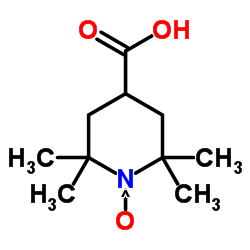Oligonucleotide and Parylene Surface Coating of Polystyrene and ePTFE for Improved Endothelial Cell Attachment and Hemocompatibility.
Martina Schleicher, Jan Hansmann, Bentsian Elkin, Petra J Kluger, Simone Liebscher, Agnes J T Huber, Olaf Fritze, Christine Schille, Michaela Müller, Katja Schenke-Layland, Martina Seifert, Heike Walles, Hans-Peter Wendel, Ulrich A Stock
Index: Int J Biomater 2012 , 397813, (2012)
Full Text: HTML
Abstract
In vivo self-endothelialization by endothelial cell adhesion on cardiovascular implants is highly desirable. DNA-oligonucleotides are an intriguing coating material with nonimmunogenic characteristics and the feasibility of easy and rapid chemical fabrication. The objective of this study was the creation of cell adhesive DNA-oligonucleotide coatings on vascular implant surfaces. DNA-oligonucleotides immobilized by adsorption on parylene (poly(monoaminomethyl-para-xylene)) coated polystyrene and ePTFE were resistant to high shear stress (9.5 N/m(2)) and human blood serum for up to 96 h. Adhesion of murine endothelial progenitor cells, HUVECs and endothelial cells from human adult saphenous veins as well as viability over a period of 14 days of HUVECs on oligonucleotide coated samples under dynamic culture conditions was significantly enhanced (P < 0.05). Oligonucleotide-coated surfaces revealed low thrombogenicity and excellent hemocompatibility after incubation with human blood. These properties suggest the suitability of immobilization of DNA-oligonucleotides for biofunctionalization of blood vessel substitutes for improved in vivo endothelialization.
Related Compounds
| Structure | Name/CAS No. | Molecular Formula | Articles |
|---|---|---|---|
 |
4-Carboxy-2,2,6,6-tetramethylpiperidine-N-oxyl
CAS:37149-18-1 |
C10H18NO3 |
|
Molecular diffusion into ferritin: pathways, temperature dep...
2000-04-01 [Biophys. J. 78(4) , 2049-59, (2000)] |
|
Molecular diffusion into horse spleen ferritin: a nitroxide ...
1996-09-01 [Biophys. J. 71 , 1587, (1996)] |
|
Paramagnetic NMR investigation of dendrimer-based host-guest...
2013-01-01 [PLoS ONE 8 , e64722, (2013)] |
|
The impact of carboxy nitroxide antioxidants on irradiated a...
2004-10-01 [Free Radic. Biol. Med. 37(7) , 946-52, (2004)] |
|
Intrathecal administration of nitroxides as potential contra...
1987-04-01 [Radiology 163(1) , 239-43, (1987)] |